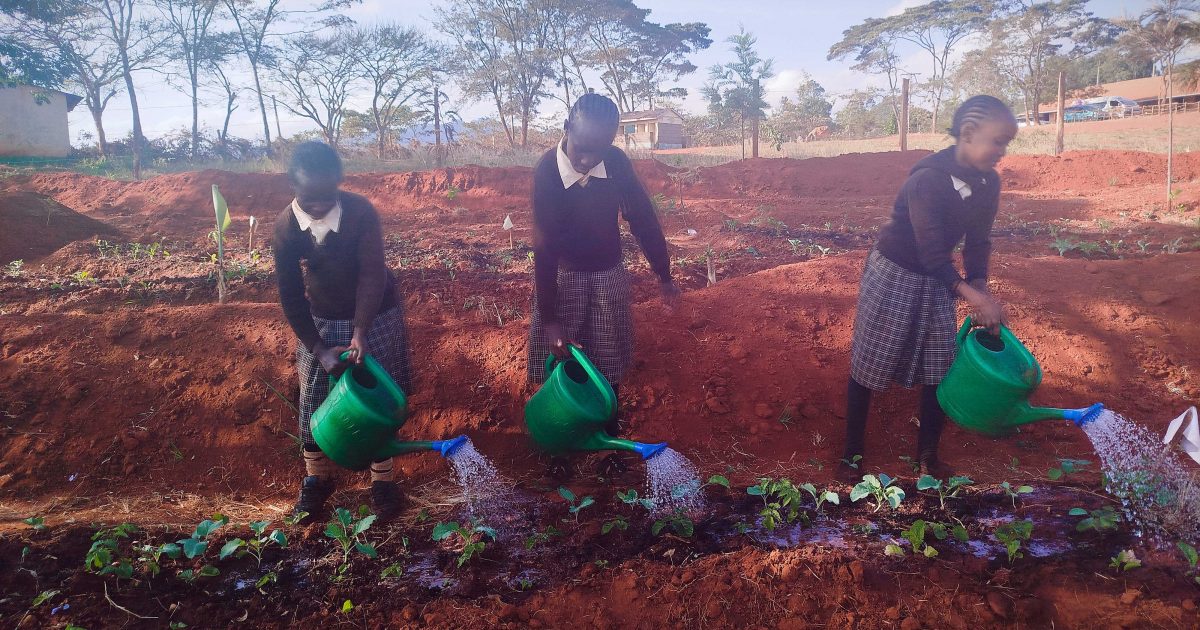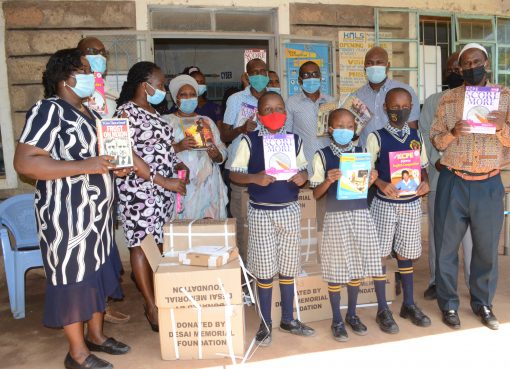Permaculture farming system was introduced in Machakos and Makueni counties to boost food security and nutritional value to the feeding program under the Schools and Colleges Permaculture Program (SCOPE)
The SCOPE which also promotes ecological agriculture was introduced in several schools to sharing their knowledge and technical support with an aim to transform school grounds into food baskets through sustainable land use thus offering nutritional needs and food security to learners.
According to Joseph Barasa a trainer at SCOPE Kenya, food insecurity in Machakos and Makueni areas has affected performance and enrollment in schools which is one of the major reasons they embarked on the permaculture sustainable farming by guiding them on techniques such as mulching and composting.
Barasa who was speaking during a one-day media training at a Machakos, said that they target both public and private primary schools and colleges because they are mostly left out in development projects while some drop out of school due to hunger resulting in poor performance in schools.
“We advocate for food security by designing school grounds and transforming barren landscape into food forests by implementing permaculture and providing nutritional needs for learners,” said Barasa.
He underscored the importance of working with the community and parents to ensure there is an in house feeding program for the learners without relying on relief food or donations that are not sustainable.
“We involve the parents, Education officers, community members and the teachers to participate in permaculture so that there is enough food to eat in school and at home and encourage other schools to practice in permaculture,” added Barasa.
Barasa noted that permaculture farming is self-sustaining and requires minimal external input with the use of various techniques such as composting, crop rotation and natural pest control.
Additionally, he outlined several schools in Machakos where permaculture has worked and has been accepted in the community as well such as Kimua Comprehensive School, Katheka kai Secondary and Miwani Comprehensive School.
Head teacher Eliud Mutungi of Kivai Pimary and Junior secondary school in Makueni reiterated that the permaculture farming was positively welcomed in his school by the learners, teachers and parents and the frequent and nutritious vegetables have boosted the morale in school.
Mutungi disclosed that Kivai School which is at the border of Machakos and Makueni had a population of 64 students and after the introduction of permaculture farming and the feeding program, the enrollment has gone up to 122 students which has also elevated their performance.
“A learner who is hungry cannot learn and permaculture has ensured children are well fed and pay attention in class which has improved their grades,” said Mutungi.
He hails the program as financially sustainable because there is no need for costly fertilizers and pesticides and has also reduced seed expenses as the parents and the community buy the vegetables when schools close and the money is used to buy more seeds
Mutungi added they are CBC compliant and they assign each learner with a portion of vegetables to manage and ensure its well-watered to generate a steady supply of nutritious food in school and also create a sense of responsibility among the learners and appreciation of the environment.
On her part Deputy Head teacher Kivai Primary School, Gloria Mwendwa, disclosed that when she reported to the school in 2023, most of the learners were transferring from Kivai to other schools because of the needy conditions, poor performance and unwelcoming environment.
Mwendwa says SCOPE team interviewed them in July on the needs of the school and what the school needed for them to improve their performance and enrollment and that’s when they began working together on the farms and in August, they learnt how to intercrop vegetables and have already harvested and are enjoying the nutritious well balanced food.
She hails SCOPE Kenya for transforming their lives since introducing permaculture program, they assisted them in getting water from the river to the school for farming, guiding them in digging trenches for harvesting rain water, helped them in fencing of the farms, ensured there is enough food for everyone and the learners are now excited to go to school.
Mwendwa adds that Permaculture has elevated CBC subjects which are done practically in the farms and the learners can now make their own nursery beds and are capable of managing them without supervision.
She notes that permaculture farming has nurtured the learners to have knowledge and skills to utilize resources to grow nutritious foods especially in their school where they have planted Spinach, Kale, Managu, terere, sweet potatoes, sugarcane, bananas, mango trees and arrow roots.
By Anne Kangero




